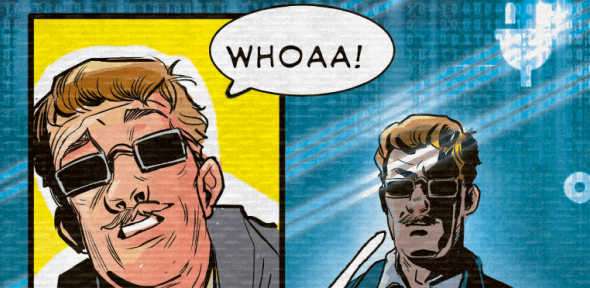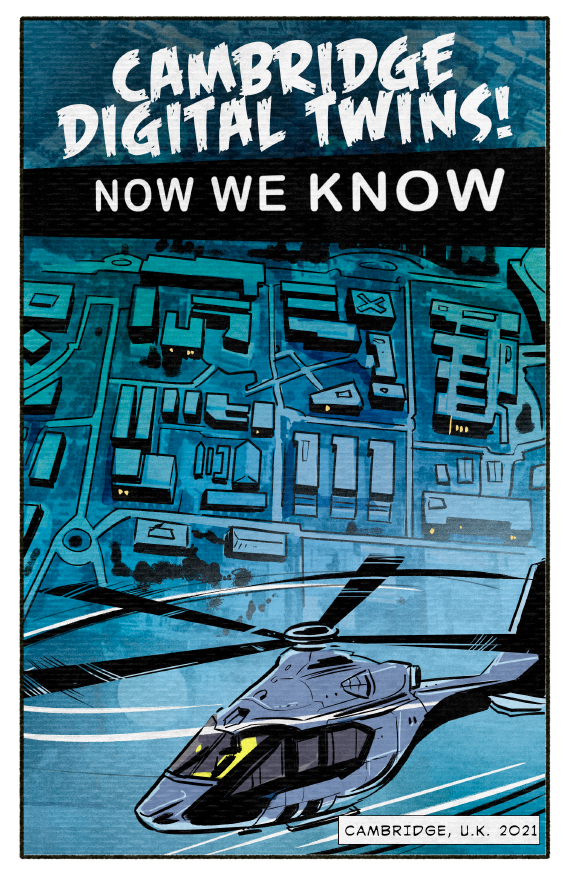
Submitted by Anonymous on Mon, 20/12/2021 - 11:06
Our latest output from the Digital Twin Journeys series is a webcomic by David Sheppard. 'Now We Know' tells the story of a fictional building manager, Hank, who isn't sure how a building digital twin can help him in his work when the existing building management system tells him what he thinks he needs to know.
This same tension plays out around real-world digital twin development, as advocates point to the promise of quality, right-time information to make better decisions, while others remain unconvinced of the value that digital twins can add. As the West Cambridge Digital Twin research team developed a prototype digital twin, they encountered this barrier, and found that working with the building-manager-as-expert to co-develop digital twin capability is the way to go. While they grounded iterations of the prototype in the building managers' present needs, they were also able to present the potential capability of the digital twin in ways that demonstrated its value. This is mirrored in the fictional narrative of the comic in the consultation between the Cambridge Digital Twin Team expert and the building manager, Hank.
Involving end users, like building occupants and managers, in the design and development of digital twins will ensure that they meet real-world information needs. Both people and data bring value to the whole-life management of assets. Many uncertainties exist in the built environment, and in many cases when pure data-driven solutions get into trouble (e.g. through poor data curation or low data quality), expertise from asset managers can bolster automated and data-driven solutions. Therefore, incorporating the knowledge and expertise of the frontline managers is crucial to good decision-making in building operations.
The benefits of this hybrid approach work in the other direction as well. While the knowledge developed by building managers is often lost when people move on from the role, the digital twin enables the curation of data over time, making it possible to operate buildings beyond the tenure of individual staff members based on quality data.
At present, the knowledge of experienced asset managers in combination with existing building information, is greater than the insights that early-stage digital twins can offer. But that does not mean that the promise of digital twins is a false one. It simply means that there is still a long way to go to realise the vision of right-time, predictive information portrayed in the comic. Digital twin prototypes should be developed in partnership with these experienced stakeholders.
To read the comic, click the image to get the download link.
You can read more from the West Cambridge Digital Twin project by visiting their research profile.
This research forms part of the Centre for Digital Built Britain’s (CDBB) work at the University of Cambridge. It was enabled by the Construction Innovation Hub, of which CDBB is a core partner, and funded by UK Research and Innovation (UKRI) through the Industrial Strategy Challenge Fund (ISCF).
To join the conversation with others who are on their own digital twin journeys, join the Digital Twin Hub.

